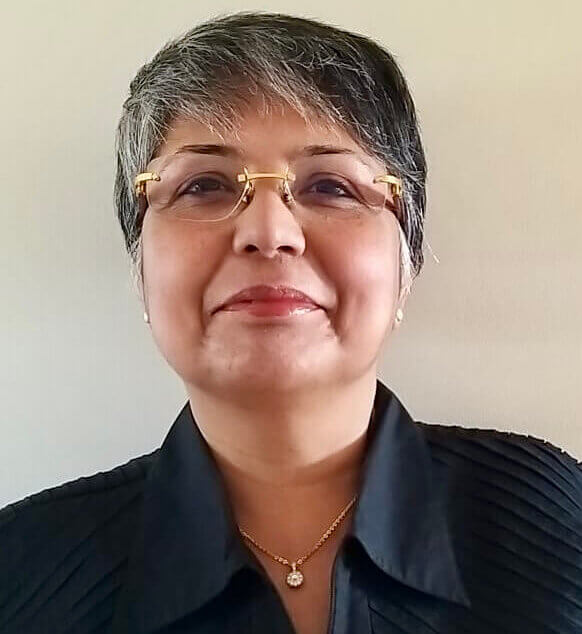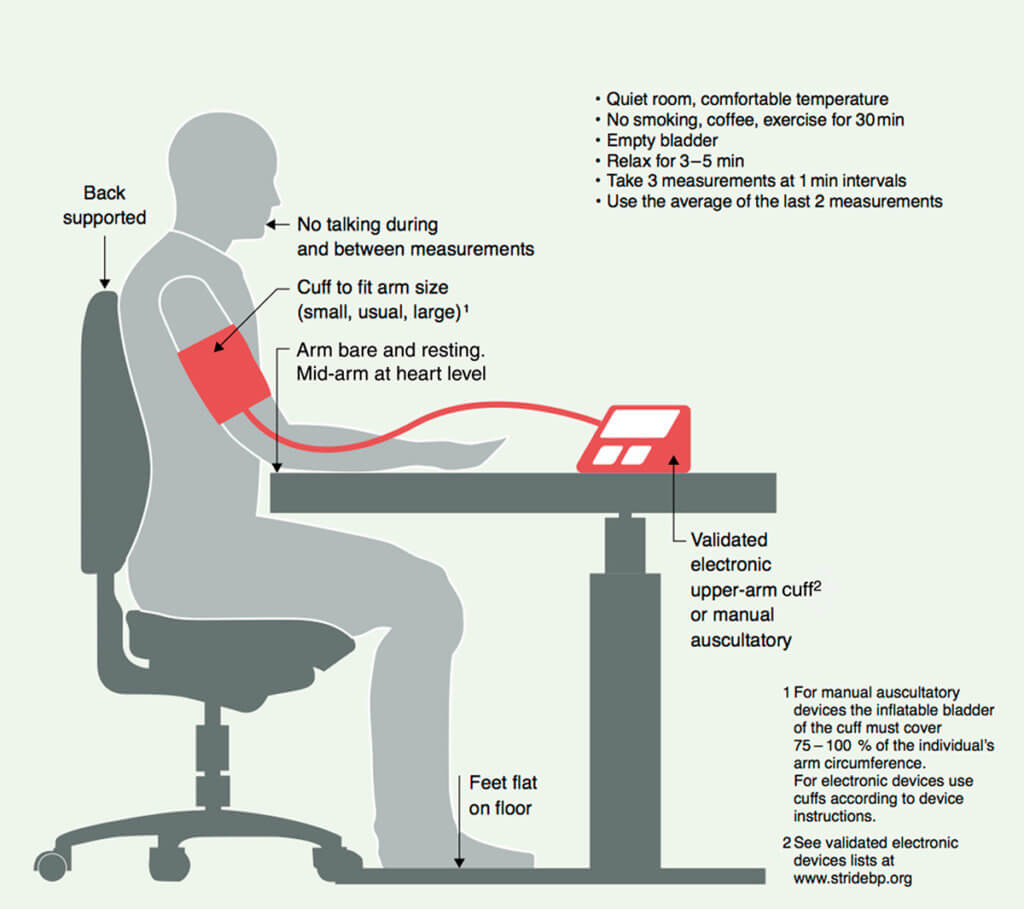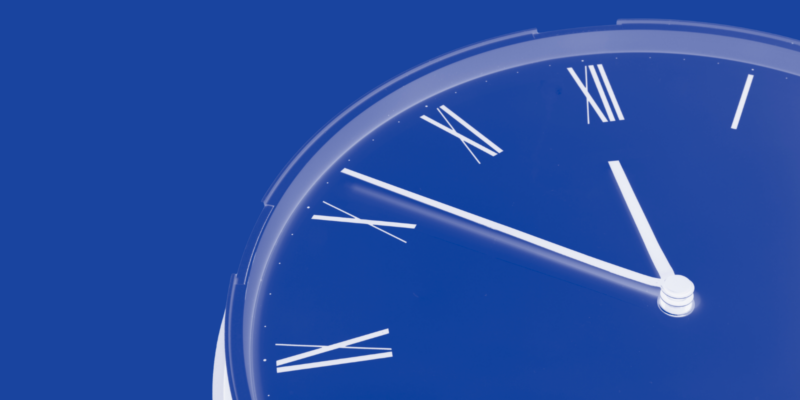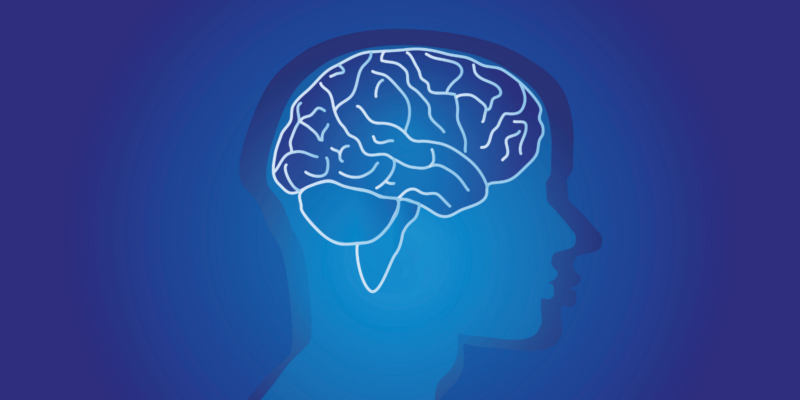Hypertension or high blood pressure (High BP) is the leading preventable cause of death worldwide. This is particularly true for low-and middle-income countries. One of the biggest challenges with high blood pressure is that it is often asymptomatic. Having a stroke may be the first time you found out that you had hypertension. Or you may have been shocked at your blood pressure levels during your annual health check-up. Or someone else was checking their BP at home and you decided to check yours as well.
Treating high blood pressure lowers the risk of stroke by 35% to 40% and heart disease (heart attack and heart failure) by 20% to 25%. ((Ref))
Hypertension Quick Facts
- The only way to detect high blood pressure is by measuring it, either at home or at the doctor’s clinic. ( Measurement will be discussed later in this article)
- The most common diagnosis of high blood pressure is called primary or essential hypertension.
- Secondary hypertension is high blood pressure resulting from some underlying conditions like kidney disease, coarctation of the aorta, pheochromocytoma, Cushing’s syndrome, hypothyroidism or Obstructive Sleep Apnoea (OSA). (Your doctor knows when to suspect and detect these conditions).
- Some drugs like oral steroids, decongestants (cold medicines), cocaine, amphetamines, ketoconazole, birth control pills and some anti-depressants can raise blood pressure. ((Ref))
- Alcohol can raise your blood pressure.
- Some autoimmune conditions like Rheumatoid Arthritis, Psoriasis are associated with a higher risk of high blood pressure.
- Psychological issues and psychiatric diseases are associated with a higher risk of hypertension.
- Your blood pressure does not remain the same throughout the day and night. It follows a circadian rhythm or a daily biological clock. ((Ref))
- Your blood pressure is the highest in the early morning and should ideally fall at night when you are sleeping.
- If your BP does not fall at night by 10% (non-dipper status) raises your risk of death from heart disease and stroke, even if your daytime blood pressure is normal. ((Ref))
- A non-dipper status can be detected ONLY by doing a 24 Hour Ambulatory BP monitoring (ABPM).
- High blood pressure is rarely present as a single disease. Most often it is present along with diabetes, high triglycerides, high uric acid levels (Insulin resistance syndrome of metabolic syndrome)
- High blood pressure can damage your eyes, heart, brain, kidneys and blood vessels. (End-organ damage)
How High Is Too High?
What are normal blood pressure levels?
As you can see in the picture below, the definition of “normal” blood pressure has changed in the last few years.

How Will You Measure Blood Pressure?
Home BP Measurement Or Clinic Measurement?
If your blood pressure is 180/110 mm of Hg at any point and you have other conditions, then a single reading is enough to diagnose hypertension.
However, the challenge arises at lower blood pressure levels. Ideally, you should be in a rested state and take an average of 3 measurements, preferably in seated and standing positions.
In recent years measuring blood pressure outside the doctor’s clinic has become important in managing hypertension. There are two ways in which this can be done.
One is to use a 24 Hour Ambulatory BP Monitor and the second is to do home BP monitoring.
Home blood pressure measurements:
You can follow the instructions in the image above.
If your average home BP recordings, after excluding the first day’s readings, are more than 135/85 mm of Hg, then you have high blood pressure.
24 Hour Ambulatory BP Monitoring (ABPM)
Ideally, this is a test that we’d like all our patients to undergo. Many doctor’s clinics or major hospitals have this service available.
You wear a BP cuff for 24 hours and live your regular life. The cuff is attached to a monitor that hangs by a strap from your neck. The cuff inflates and deflates at fixed intervals to record your BP. At the end of the day, you return the device to the clinic. The recordings are analyzed and provided as a report. A sample report is shown below. (All reports do not look like this).

Benefits of ABPM
- Detecting non-dipper status. If your nighttime BP does not fall by 10% on ABPM, you are called a “non-dipper”
- Time your BP medicines to the time of BP increase. (Chronotherapeutics). This has to be done in consultation with your doctor. Please do not adjust your medications yourself.
- A “rough” test for salt-sensitivity of blood pressure. ((Ref))
24-hour ABPM of more than 135/80 mm of Hg or daytime BP of more than 135/85 and nighttime BP of more than 120/70 indicates hypertension. ((Ref))
What Can You Do?
- If you have been diagnosed with hypertension and prescribed medicines, please take them REGULARLY!
- Monitor your BP at home. Which monitor should you use? This website has a list of validated home BP monitors.
- Use phone apps to keep a record of your BP. Here are two that you can use. (These are BP recording apps. They do not measure BP)
SEMMT:
Sleep, Eat, Move, Mind-body Interventions and Targeted Supplementation
SLEEP:
Poor sleep quality and sleeping too little or sleeping too much are all associated with higher blood pressure. Sleep deprivation increases your levels of inflammation as well.((Ref)) ((Ref))
EAT:
The best diet for weight loss and hypertension?
In a study where they compared a group of people on a low-carbohydrate diet with others who were on the obesity medication Orlistat and a low-fat diet, those on the low-carb diet showed lower BP than those on Orlistat and low-fat diet combo. Interestingly, the low-carb group needed fewer BP medications as well. ((Ref))
Weight loss: Losing body fat has a huge impact on reducing your blood pressure. The important questions are, how much weight loss? And what is the best method?
As little as 5-10 % of weight loss, if maintained over the long term, can reduce not only your blood pressure but your risk for many diseases. 10% is 8 kilograms (17.6 pounds) for someone who weighs 80 kg (176 pounds).
What about salt intake?
A large population-based study covering 18 countries showed that too much OR too little sodium intake (which comes from salt) is associated with adverse health consequences. In those countries like China where the average sodium intake is high (>5 grams a day), higher sodium intake was associated with a high risk for heart disease and stroke. ((Ref))
Salt sensitivity is also dependent on ethnicity.
MOVE:
Exercise is extremely important for health. However, you will not lose weight through exercise ONLY! Several studies in recent years have shown the health risks of continuous sitting. The “Sitting Disease.” Interestingly sitting continuously even negates the benefits of 30 minutes of daily exercise.
Do you know your sitting score? Find out here.
Daily steps and blood pressure: In a study, overweight men and women aged 35-59 years who were primarily sedentary (daily step count of 3000-6000 on a pedometer is considered sedentary) were asked to reach a target daily step count of 10,000 steps.
At the end of 12 weeks (that was the length of the study), those people who had reached an average daily step count of 10,000 steps had lowered their systolic BP by an average of 13.74 mm Hg.
In addition, they also succeeded in reducing their blood glucose levels ((Ref))
MIND-BODY INTERVENTIONS:
Eliciting a Relaxation Response has shown a reduction in blood pressure. In fact, using techniques for relaxation response has shown benefits in lowering blood pressure and works at the gene expression level (gene transcription). ((Ref))
What are the different ways to elicit a Relaxation Response?
- Mindfulness
- Meditation
- Deep Breathing
- Yoga
- Tai Chi
- Qigong
- Prayers
TARGETED SUPPLEMENTATION
Many supplements are useful in reducing high blood pressure. (I will write a separate article on this later)
Some of them are listed here:
- Magnesium
- Omega 3 Fatty Acids
- Aged Garlic
- Coenzyme Q10
- Vitamin D3
- Taurine
- L-Arginine
Other articles:
- Adverse consequences of Sleep Loss (Infographic)




